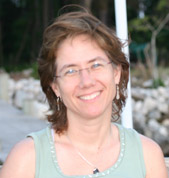
Chemistry Major
Director, Office of Strategic Coordination, National Institutes of Health, Bethesda, Md.
Current projects
This office is responsible for the coordination and management of research funded through the NIH Common Fund … We currently support 26 diverse programs in which we distribute over $500 million in grants to scientists all over the U.S. and abroad.
Undergraduate Research
I worked for Dr. Tom Goodwin the summer after my sophomore year at Hendrix. This was a life changer. I decided at that point that I wanted to pursue a career in research. I then worked at the University of Arkansas the summer after my junior year. This was a biochemistry lab that sought to determine the mechanism of action of brown recluse spider venom. This was also life changing because it focused my interests on biochemistry/cell biology. I decided to pursue this research via a senior honors project at Hendrix. The general hypothesis was that the spider venom caused local necrosis of tissue by recruiting specialized blood cells to the site which normally kill bacteria but which, in the presence of spider venom, kill cells. My results were inconclusive, but it was a great learning experience.
How Hendrix prepared me for success
Hendrix provided me with a strong sense of the scientific process. I was well prepared for research when I went to graduate school because I had a good foundation for the design of experiments. My experience at Hendrix also taught me how to learn independently – a life skill that I use every day.
Future plans
We are currently planning two new programs. One new program is Metabolomics. The questions are, "how can we measure a person's exposure to toxins, how well they're metabolizing drugs, how well they're nourished, whether they have cancer, or many other questions about their health, simply by measuring the break down products/chemicals in their blood, saliva, or other body fluids." A second program that we are developing will support technology development to enable the analysis of single cells within their natural contexts. This is important for all tissues, but cellular heterogeneity and the importance of the local biological environment of cells are increasingly recognized as critical factors for tumor growth, neural function, stem cell differentiation, and regeneration.
My advice
Today, more than ever, biomedical research needs people who are comfortable with math and computational science as well as biology and medicine. Research at the interfaces of biology, chemistry, math, computer science, and physics is producing remarkable innovation. My advice to all young scientists is to be broadly educated and to learn to educate yourself so that you continually learn. Going to Hendrix is a great step in that direction.